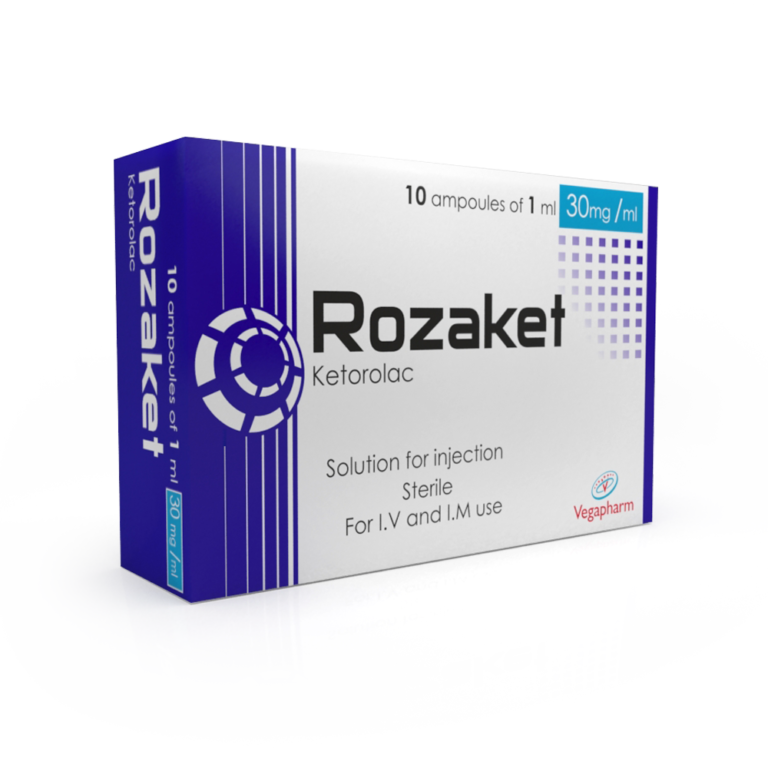

Ketorolac in Rozaket is a non-steroidal anti-inflammatory drug – a derivative pyrrolysine carboxylic acid.
Each ml contains:
Ketorolac Injection is indicated for the short-term management of moderate to severe acute post-operative pain (after abdominal, gynecological, orthopedic, urological and other operations), pain injuries (dislocation, fracture, fractures and sprains), osteoarthritis pain, osteochondrosis, rheumatism, myalgia, arthralgia, sciatica, neuralgia, cancer pain, toothache, pain following dental procedures, pericoronitis, pulp, back pain and muscle pain).
Rozaket Injection is for intramuscular or intravenous use only. Intravenous doses should be given over at least 15 seconds.
Treatment should only be initiated in hospitals. Dosage should be adjusted according to the severity of the pain and the patient response. Undesirable effects may be minimised by using the lowest effective dose for the shortest duration necessary to control symptoms . Opioid analgesics (e.g. morphine, pethidine) may be used concomitantly, and may be required for optimal analgesic effect in the early post-operative period when pain is most severe.
Adults – the recommended initial dose of Rozaket Injection is 10 mg followed by 10 to 30mg every four to six hours as required. In the initial postoperative period, Rozaket may be given as often as every two hours if needed. The lowest effective dose should be given. A total daily dose of 90 mg for non-elderly and 60 mg for the elderly, patients with renal impairment and patients less than 50 kg should not be exceeded. The dosage in patients under 50 kg should be reduced.
Patients receiving Rozaket Injection, and who are converted to oral Rozaket, should receive a total combined daily dose not exceeding 90 mg (60 mg for the elderly, patients with renal impairment and patients less than 50 kg). The oral component should not exceed 40 mg on the day the change of formulation is made. Patients should be converted to oral treatment as soon as possible.
Elderly – for patients over 65 years, the lower end of the dosage range is recommended and a total daily dose of 60 mg should not be exceeded. The elderly are at increased risk of the serious consequences of adverse reactions. If an NSAID is considered necessary, the lowest effective dose should be used for the shortest possible duration. The patient should be monitored regularly for GI bleeding during NSAID therapy. Renal impairment – Rozaket Injection should not be used in moderate to severe renal impairment and a reduced dosage given in lesser impairment (not exceeding 60mg/day IV or IM).
